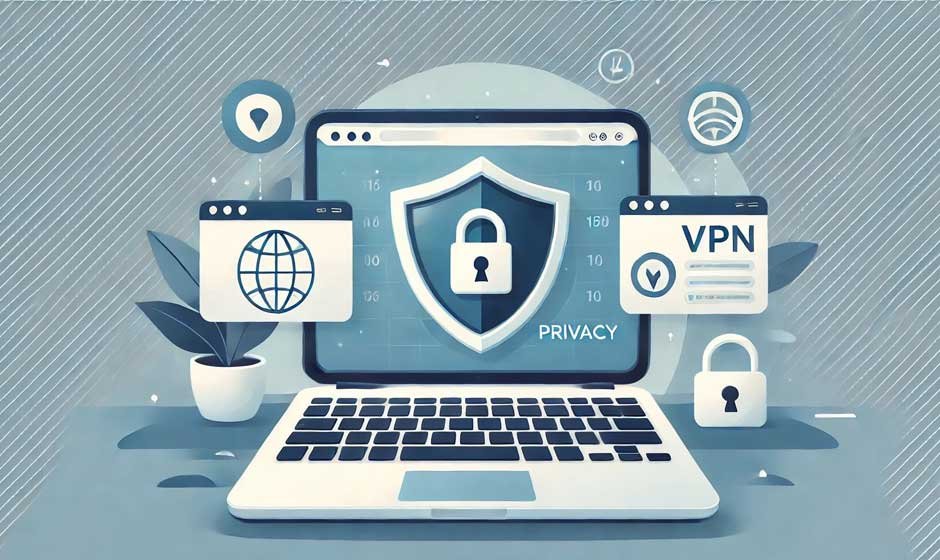The conversation surrounding online privacy concerns all of us, not just the tech experts. How safe is your data as you browse? No matter what you do online, someone could always be watching. While at times such ‘eyes’ are harmless, there are instances when they may attempt to intercept your data with malicious intent. Below, we discuss how you can protect not only your data but also your identity.
A Simple Internet Privacy Guide for Non-Techies
The dialogue on online privacy often sounds complex, laden with complicated terminology and tech jargon. In this article, we do it differently. Next up, we explain to you what you need to know in the simplest of terms so you can stay safe online.
Passwords: Your First Line of Defense
Passwords are the most basic element of internet security. Yet even in this simple step, many of us are getting it wrong. A formidable password should be at least 8 characters long, combining letters, numbers, and special characters.
Many people use simple ones to make them easier to remember. Password, qwerty, abc123, names and dates of birth are some of the most common ‘lazy’ passwords. Hackers often test these using automated tools, and you’re left wondering how someone ‘guessed’ your password.
Another common mistake is using a single password across multiple platforms. Hackers will have a field day with your accounts. Remember to activate the 2-factor authentication. Whenever the system detects a strange login attempt, an SMS alert is sent to your phone, and you can arrest the situation right away.
How will you remember all the different passwords? By using a password manager that helps you generate strong passwords and also stores them securely. Finally, whenever you notice suspicious activity, change your login details right away.
The Dangers of Using Public Wi-Fi
Whenever you find yourself in a public place with the Wi-Fi password displayed, or even an open network with no password, do not be so quick to connect. Public networks are a favorite playground for hackers with malicious intentions. A third party can easily intercept the data that you send or receive. Such hackers mainly target personal details, such as usernames, passwords, bank account numbers, and so on. In a worst-case scenario, they can access your bank accounts and siphon your funds.
We also have cybercriminals who create illegitimate Wi-Fi hotspots. You could be in an airport, for instance, and find an open hotspot named ‘Airport Lobby’ or something similar. You’ll assume that the airport has provided the hotspot. But once you connect, the hackers can track all your online activity. Knowing this, you will avoid public networks, or at least avoid them when accessing sensitive data.
Online Privacy Tools: Proxies and VPNs
For a non-tech, the above can sound complicated. You don’t need to internalize the technical details of how they work. What’s important here is what they help you achieve: anonymity.
Every user on the internet space is identified with an IP. This is the starting point of the pathway that you follow from your device to the websites that you visit. By monitoring an IP, hackers can easily uncover your identity and location. However, by employing a proxy, your real IP stays hidden, and your device displays a different one instead. Anyone trying to track your activities will be thrown off track by the fake IP.
VPNs enhance your privacy even further by protecting not only your identity but also your data. These tools turn the data into a different format that a third party cannot decode. If you’re using public Wi-Fi in the airport, employing a VPN will ensure that even a hacker cannot identify the information that you transfer, helping your data to remain safe. In particular, using a residential VPN will make you appear to be browsing from a typical household, and you will no longer be a target.
Additional Tips
We have discussed three of the most essential pointers in safeguarding your internet privacy. Here are a couple of additional tips that you should be aware of:
- Don’t click on links from unfamiliar sources: they’re often a conduit for copying your personal data.
- Scan attachments with antivirus softwarebefore opening them.
- Use private mode/incognito when browsing on shared devices.
- Your apps should not have unnecessary access (such as location, contacts, etc.).
- Keep your software updated so that it can detect any security breaches.
Conclusion
Cybercriminals are always looking for a new loophole to poke their eyes into your business. Fortunately, you’re now a step ahead. With this information, you can now browse safely, knowing that your identity and data will remain protected.










